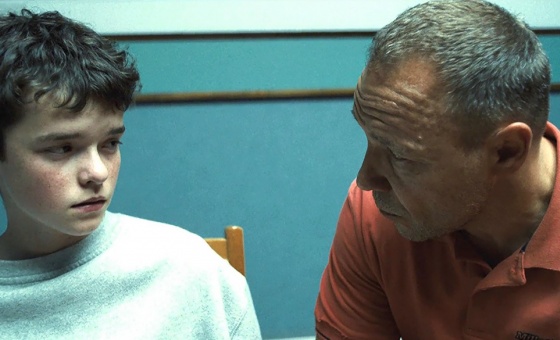This is the last article you can read this month
You can read 5 more article this month
You can read 5 more articles this month
Sorry your limit is up for this month
Please help support the Morning Star by subscribing here
THE name of Tony Chater, whose funeral takes place in Luton today, will forever be linked with the battle to defend the political and organisational integrity of the Morning Star.
The paper became a battleground in the 1970s and early 1980s where differences within the Communist Party of Great Britain were played out.
Communist Party of Great Britain (CPGB) conferences held discussions on the paper’s content, its political orientation and the responsibility of party members to support it.
A self-styled Eurocommunist minority was hostile to the priority given by the Morning Star to trade union activities to raise workers’ living standards, terming it “economism.”
The paper’s generally positive attitude toward the Soviet Union, despite various criticisms, also attracted hostility, although it was well known that the Soviet Communist Party bought several thousand copies of the Morning Star each day.
The difficulties of publishing a left-wing daily paper in a hostile capitalist environment spawned countless ideas of how to overcome this, but, as the Eurocommunist trend gained traction within the party leadership, these were distilled into a single demand that the editor should go.
Chater incurred the wrath of the party leadership by inviting Communist Party industrial organiser Mick Costello to respond in the paper to an article in the Marxism Today journal that attacked the shop stewards movement as corrupt.
This culminated in an invitation to Costello to return to the Morning Star as industrial correspondent without discussing his redeployment with the party’s general secretary Gordon McLennan.
The executive committee ordered Chater and his deputy David Whitfield to stand down and be replaced by diplomatic editor Chris Myant and editorial assistant Frank Chalmers respectively.
Chater and Whitfield were supported in their refusal to do so by many party organisations and by the People’s Press Printing Society (PPPS) management committee, which, then as now, stewarded the assets of the paper and had responsibility for appointing the editor.
The Morning Star and the management committee wanted to head off what was already looking like an all but inevitable split by seeking discussions to allow co-operation based on respect for the paper’s autonomy, but the party leadership was intent on resolving a political question by administrative methods.
Both men and other party members on the management committee, including its chair Ken Gill and chief executive Mary Rosser, were expelled from the party in 1985.
Party individuals and organisations that sided with the paper and its management were expelled, suspended or reorganised, resulting in a loss of thousands of CP members.
Despite the disciplinary onslaught and CPGB leadership’s efforts to change the paper’s management through mass attendance to vote at annual PPPS shareholder meetings, the majority, comprising an alliance of Communists, Labour Party members, militant trade unionists and international solidarity groups backed Chater and his comrades.
Miners’ leader Arthur Scargill told the Manchester section of the PPPS AGM that the Morning Star’s crime had been to defend “the working class and socialism.”
Chater and a number of supporters then set up the Communist Campaign Group (CCG) as a means to keep these expelled members together and, in 1988, believing that the CPGB was about to give up the ghost, set up the Communist Party of Britain in what they called a “re-establishment congress,” claiming the mantle of the party set up in Britain in 1920.
To this end, the CPB adopted the same party programme and rules — with one exception. It reinstated the recently dropped rule that all members should buy and support the Morning Star.
The CPGB lingered on for another three years before dissolving itself into a short-lived talking shop known as Democratic Left.
Chater had been a loyal party member since joining while still at grammar school in Northampton shortly after the end of the second world war.
He studied chemistry at Queen Mary College, London, gaining a First and, while studying for his PhD, met his future wife Janice who was reading chemistry and maths.
They went to Canada where he had a research studentship at a government experimental farm in Ottawa, studying what happens to proteins in leaves in freezing conditions.
Chater then received a British Council grant to study radioactive techniques in research in Belgium before returning to teach first in Norwich and then at Luton Technical College.
He stood as a parliamentary candidate for the CPGB four times in Luton before taking up full-time work for the party in its press and publicity department in 1969, working alongside Nora Jeffrey.
Five years later, he and Morning Star editor George Matthews swapped jobs, with Chater taking up the helm at the Morning Star at a time of acute class conflict.
The release of the Pentonville Five from prison, the jailing of the Shrewsbury pickets and the Grunwick dispute in the 1970s gave way to the women’s occupation of Greenham Common, the Falklands war, the 1984-5 miners’ strike, the Wapping dispute and the carnival of reaction that was Tory rule under Margaret Thatcher and John Major.
The Morning Star under Chater gave voice to the workers’ cause, to the peace activists and to all fighting for human rights, despite internal Communist problems.
He encouraged the development of closer political working with the left of the Labour Party, including Michael Foot, Tony Benn, Dennis Skinner, Ken Livingstone, Eric Heffer and a young parliamentary entrant in 1983, Jeremy Corbyn.
Labour’s annual conference agreed that same year to “support our media,” urging the movement to back existing titles Labour Weekly, Tribune and the Morning Star.
Close working with Foot helped to secure a brief breach in the ban on the Morning Star receiving government advertising as prime minister Harold Wilson ordered that ads should be placed.
Former parliamentary correspondent Roger Bagley recalls that senior civil servants failed at first to comply, saying: “It must have been like something out of Yes Minister with the civil servants refusing to authorise them until Wilson laid down the law.
“Mind you, Wilson was crafty, so the first ads were about the government incomes policy that the paper opposed.”
Chater gave the go-ahead for Bagley to break the strict embargo on the Queen’s 1982 Christmas Day message in response to the government’s decision to give her a speech that went beyond the usual platitudes to a pro-war stance.
“The Queen is set to plunge into political controversy with a Christmas Day message glorifying the Falklands conflict,” the Morning Star splash opened, setting off a political storm.
Three years later, during the Wapping dispute, industrial correspondent Mick Costello blew the whistle on Rupert Murdoch’s plot to engineer a strike by print workers as a means to sack them without compensation, having got his hands on a letter from Murdoch’s legal advisers.
Costello had first met Chater when they both worked at the party’s King Street HQ.
“I knew him as a consistent propagandist for the fight for peace and against the dangers to it from aggressive military alliances — in the first place Nato,” he says.
However, he worked most closely with him at the Morning Star, where “he did not tolerate the use of shoddy or loose terminology that might dilute the paper’s clear editorial approach to news and comment.
“Tony ensured that the team at the paper kept to the political path charted by the Communist Party programme Britain’s Road to Socialism, with its strategy for building a broad anti-monopoly alliance rooted in the leading role played by the working class,” says Costello.
“I will remember him for his rigorous thought, hard work, uncompromising commitment to principles, devotion to the fight for peace and socialism and also for rows with him and then sharing a joke and a pint.”
David Whitfield, who was Morning Star features editor and deputy editor under Chater’s editorship during the 1970s and ’80s, recalls him as “single-minded and steadfast” in defending his strongly held views.
“He was convinced the trend of Eurocommunism aimed to destroy both the Marxist party and close the Morning Star as a daily campaigning focus and voice of ordinary people. He put himself stubbornly in its path, often at great personal stress to himself.
“And it is largely down to Tony Chater’s focus that the Morning Star continues to publish daily.”
Whitfield says that, “in lighter moments, Tony Chater would chuckle that his strategy was Sitzfleisch,” which translates as “buttocks” and was deployed by Albert Einstein to explain his refusal to leave a problem until it was resolved, but this was rendered by Chater as “the one with the fattest arse sits longest.”
He insists that Chater could not be provoked. He would just become more stubborn.
“It took personal courage. Tony Chater was not at all an aggressive man. Indeed, he was sensitive, gentle and patient with those of lesser experience, political imagination, learning, reading or mettle. He could be charming, witty, always erudite and generous.”
Many commentators speculated, with the reduction and then cancellation of Morning Star sales in the Soviet Union, that the paper would go out of business in 1991 or shortly afterwards.
However, sacrifices by staff and supporters, assisted by new sales and influence in the trade unions and the Labour Party, especially since Jeremy Corbyn’s election, have confirmed that there remains a material basis for the Star’s existence.
As Chater said in 1985 when the paper changed to tabloid format, “the Star will continue not just to report events but to be a weapon in the hands of the movement to shape events — in favour of ordinary people.
“The Star is a mobiliser, educator and agitator.”
Communist Party general secretary Rob Griffiths, who got to know Chater when they worked together in the CCG and then in the CPB leadership, says that his “commitment to working people and class politics rescued the Morning Star from those whose class collaboration would have destroyed it.
“He also helped devise the ‘re-establishment’ strategy which saved the existence of a Communist Party anchored in the labour movement and implacably opposed to imperialist militarism and war.”
Chater retired in 1995 and stepped back from activity, spending his time with family and reading voraciously, looking over his life, especially his political involvement.
“Tony spent 21 years as editor. A large part of it he enjoyed, but it got too much towards the end. The disappearance of the Soviet Union really upset him,” says his wife Janice.
“He reviewed everything. He was reading and reading. I wouldn’t like to say he regretted everything, but he said that there had been some bad mistakes.
“In his latter days, he suffered from vascular dementia which robbed him of the ability to concentrate. It was very sad to see. He had a very good mind and it just went towards the end.”
As well as wife Janice, Tony Chater leaves sons Martin, John and Simon and a number of grandchildren.
JOHN HAYLETT
Morning Star political editor
Funeral details: Luton Crematorium, The Vale, Butterfield Green, Stopsley, Luton, LU2 8DD at 4pm today.








